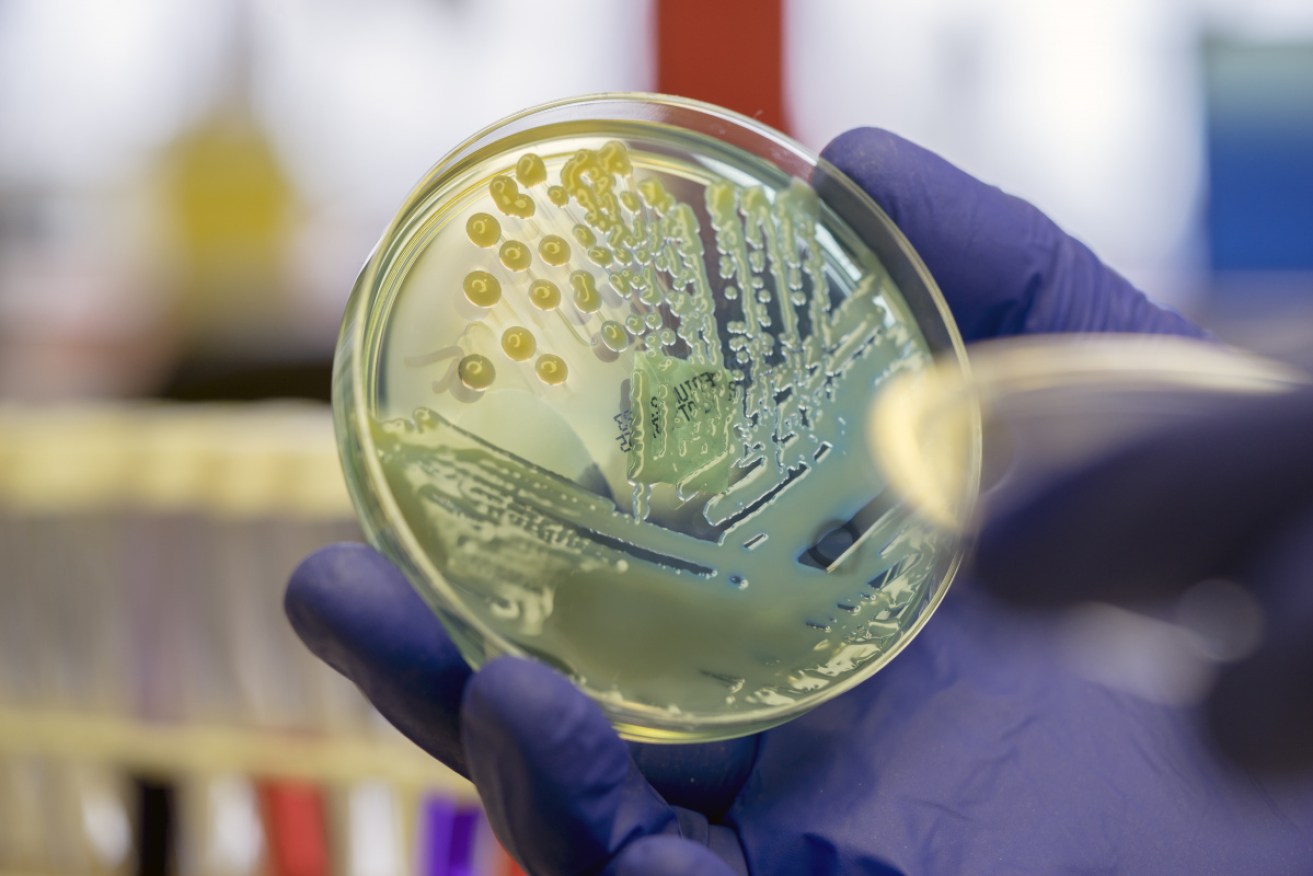‘Potential landmark’: New class of antibiotics could kill hospital superbugs


There are warnings that cases of vaccine-resistant pneumonia are on the rise. Photo: Getty
Although all our attention has been taken up with viruses over the past couple of years, some scientists have continued working to solve a potentially bigger problem, if we’re to judge these things by a body count.
COVID-19 has killed about five million people worldwide in two years.
Antimicrobial resistance (AMR) to drugs is predicted to kill 10 million people a year by 2050.
The main cause of AMR is the over-use of antibiotics.
You’ve heard all this before.
In January 2020, we reported that drug companies were abandoning research, causing the World Health Organisation to call for government regulation.
Meaning, governments had to get involved in the research and even the manufacture of a new class of drugs, because private companies weren’t interested.
We’ve seen that governments can to an extent pull their finger out when a medical crisis is happening.
But we really don’t want to wait until 10 million people are dropping dead from treatment-resistant pneumonia and staph infections.
Or even just an infected cut to the finger.
Now some good news
US researchers have invented a new class of double-acting antibiotics based on vaccine thinking.
The Wistar Institute researchers are calling these drugs “immuno-antibiotics”.
This is very much at the experimental stage but In pre-clinical trials, these drugs appear to block an essential pathway in bacteria and rapidly activate the adaptive immune response.
“We took a creative, double-pronged strategy to develop new molecules that can kill difficult-to-treat infections while enhancing the natural host immune response,” said Dr Farokh Dotiwala, assistant professor in the Vaccine & Immunotherapy Centre at the Wistar Institute.
He is the lead author of a new paper detailing the breakthrough. Unfortunately, there were some discrepancies between two sets of data and how they were represented in some figures.
This caused the authors to retract the paper while they address the issue.
This doesn’t kill off the concept. Nature continues to publish the paper and an accompanying article, noting the difficulties.
And the thinking behind the study is exciting.
What the scientists were thinking
Dr Dotiwala said that existing antibiotics target essential bacterial functions, including nucleic acid and protein synthesis, building of the cell membrane, and metabolic pathways.
But bacteria can acquire drug resistance by mutating the bacterial target the antibiotic is directed against, inactivating the drugs or pumping them out.
“We reasoned that harnessing the immune system to simultaneously attack bacteria on two different fronts makes it hard for them to develop resistance,” Dr Dotiwala said.
The researchers reasoned that vaccines “are much less likely to give rise to resistance because they work by enlisting the body’s immune response rather than just directly killing the pathogens (like traditional antibiotics do)”.
So, they researched an antibacterial strategy that could also harness an immune response.
The new compounds kill bacteria by blocking a metabolic pathway (series of chemical reactions) that is essential for them to grow and survive.
Though at the same time, these drugs potently activate a subset of T cells involved in immune responses to a wide variety of viral and bacterial infections, adding a second line of attack.
When tested on patient-derived, drug-resistant bacteria and in preclinical models of infection, immuno-antibiotics outperformed the current best-in-class antibiotics.
They believe their strategy “may represent a potential landmark in the world’s fight against AMR”.
Maybe it is. We’ll let you know when they’ve updated their paper.








